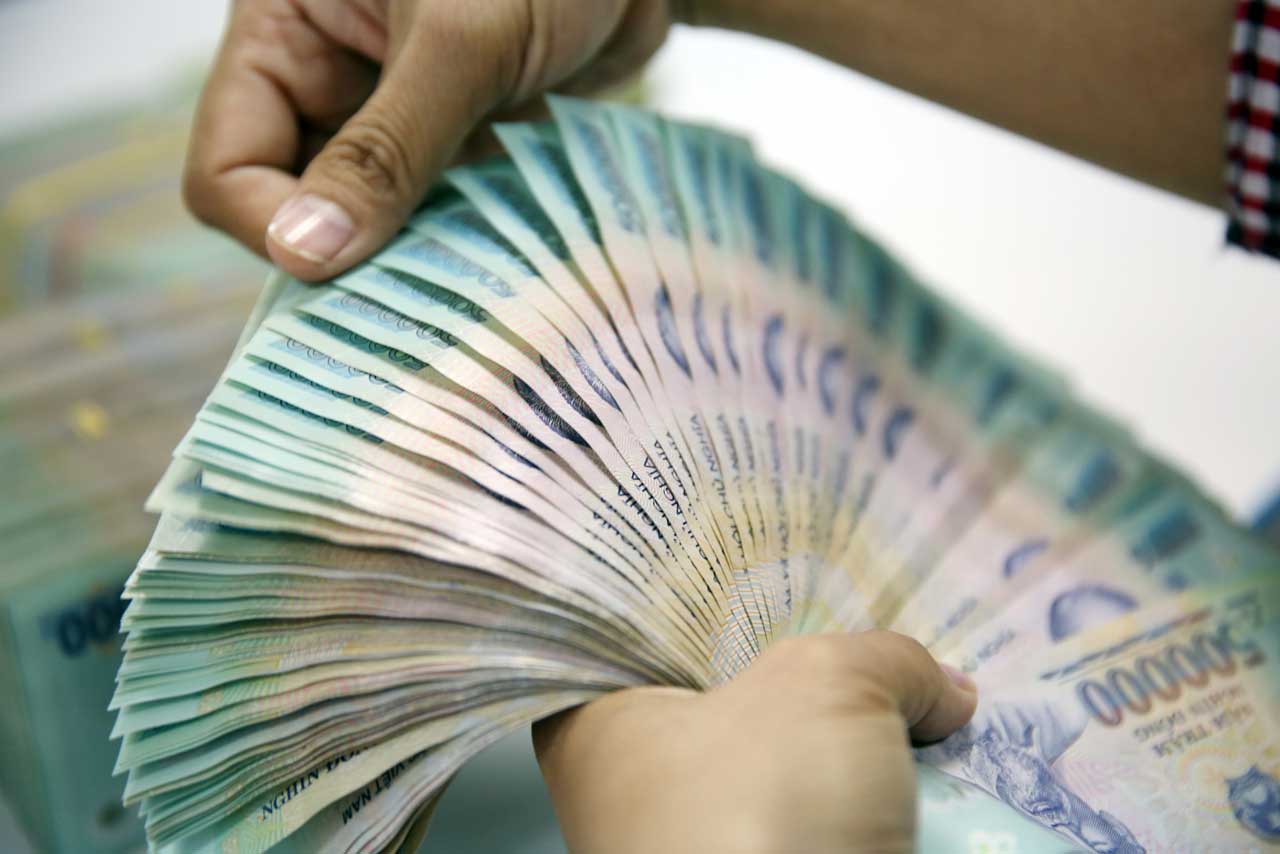This year, changes of hands are likely at some banks, in addition to mergers and acquisitions (M&A) and share sales to foreign partners.
Now that the market is favorable again, it is certain that banks will strengthen their internal resources by finding strategic partners and speeding up the restructuring process.
SMBC to switch from Eximbank to VPBank?
After several failed attempts, Eximbank recently held a general meeting of shareholders to elect seven members to its Board of Directors (BOD) for the 2020–2025 term. The chairman of the BOD was also named before the deadline set by the State Bank of Vietnam (SBV). This suggests that the three-year-long dispute between the major shareholder groups within the bank has been partially resolved. It is because of the conflicts of interest between groups of internal shareholders that the last term of the BOD had to be extended by two years.
That said, it seems the disagreements have not completely been settled, as only 60.25% of the shareholders attending the recent meeting voted in favor of its rules and agenda, whereas more than 39.73% cast negative votes. Moreover, a series of documents submitted by the BOD, the Supervisory Board, and the Executive Board in previous years did not get ratified at the general meeting of shareholders.
Apart from Sumitomo Mitsui Banking Corporation (SMBC), a strategic shareholder with outstanding ownership of 15%, there are currently five major groups of domestic shareholders with large stakes in Eximbank, none of whom gets along with the others. However, since the bank recently managed to organize a general meeting of shareholders, it is expected that the superstructure will soon stabilize and its shareholders will become more united, paving the way for faster development of the bank moving forward.
Meanwhile, SMBC is looking to pull out of Eximbank in the near future, ending 14 years of partnership. Reportedly, SMBC did not send any delegate to the 2021 annual meeting of the bank, having already withdrawn the representative of their contributed capital from the BOD in late 2019. Once SMBC transfers the capital to a domestic investor, the ownership ratio at Eximbank will become more concentrated, and the competition between the groups of shareholders at the bank will probably come to an end.
Notably, SMBC’s letting go of Eximbank is a step toward its becoming a strategic shareholder of VPBank. This is because, according to current regulations, a foreign financial group cannot be a long-term and major strategic shareholder (with a stake of 15%) at two credit institutions at the same time. Earlier, in 2021, VPBank sold 49% of its charter capital at FE Credit to SMBC, and then got two syndicated loans worth a total of US$300 million with SMBC’s help.
Meanwhile, foreign ownership of VPBank has been capped at 15% to facilitate the private placement of shares to foreign strategic shareholders, but the bank is seeking shareholders’ opinion to push this limit up to 17.5%. Although the identity of their strategic partner has not been revealed, VPBank leaders have confirmed that SMBC is the one that has attracted their interest for the upcoming private placement, the plan for which will likely be completed in the first half of 2022.
 Banks in the process of restructuring
Banks in the process of restructuring
In addition to the deals at Eximbank and VPBank, a change of hands is expected at some banks that are currently in the process of restructuring, such as Sacombank, whose capital sale to foreign partners has been long rumored. At a general meeting in April 2021, chairman Duong Cong Minh informed shareholders that after the restructuring is completed in 2022, Sacombank will sell 32.5% of its equity to two foreign partners.
Reportedly, the volume of shares Sacombank is looking to sell has something to do with the debts of Tram Be, which have not been written off. At present, Sacombank is still applying for a mechanism to buy back a stake of 32.5%, currently looked after by VAMC. Once VAMC special bonds are settled, the bank will bring it back for auction. According to the chairman of VAMC, after Tram Be’s STB shares are dealt with, things will be better for Sacombank than they are now. Buyers will put in legit money for the restructuring, take care of the bank, and foster its development.
Meanwhile, Duong Cong Minh said the real owner of the shares will appear once they have been handled, and will take care of Sacombank similar to what he is doing right now. Recently, STB has seen positive price increases in anticipation of a change of ownership at Sacombank, which may help the bank recover faster following the restructuring process.
The group of weak banks undergoing restructuring will likely be the center of attention this year with M&As serving as a viable solution, considering how the banks have taken the initiative to look for and exchange information and developed relationships with partners involved in the restructuring process. Apparently, the handling of this group in recent years has fallen short of expectations due to lack of resources and the time-consuming procedures of identifying and remedying the damage.
In Directive 01/CT-TTg issued on February 8, 2022, the Prime Minister has called for the immediate handling and restructuring of two incompetent banks with the approval of competent authorities and continued efforts to urgently draw up plans to deal with and restructure the remaining weak banks. Meanwhile, according to the SBV, it is expected that the banks they have bought for zero dong will accelerate their restructuring this year.
Regarding the sale of capital to foreign investors, the market will likely witness more deals in 2022 as quite a few banks have put a cap on foreign ownership to aid the sale of capital to strategic partners. For example, the foreign ownership limit at MSB has been temporarily set at nearly 30%, whereas Techcombank and VIB have capped it at 22.5% and 20.5%, respectively. This is because the holdings of foreign investors cannot exceed 30% as per current regulations.
Recently, a senior source from OCB, whose foreign ownership limit is currently 10%, said the bank is in talks with a foreign partner, namely Aozora Bank (Japan), over the sale of the remaining stake so as to drag the percentage of shares held by foreigners below the prescribed ceiling of 30% in the near future.









